After Aaron Sorkin
, a Master of Dialogues, we introduce you to Dustin Lance Black, a passionate and inspiring Storyteller.
Why inspiring?
Because his life demonstrates that - irrespective of your circumstances - you can realize your dreams if you take a stand for the stories you want to tell and you have the integrity to stay true to yourself.
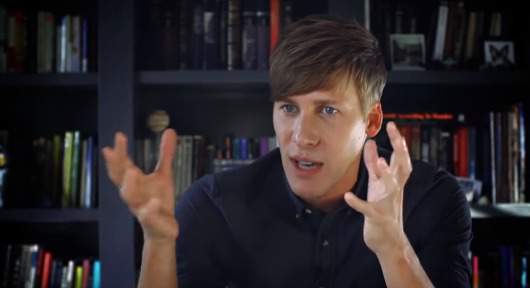
Dustin Lance Black is one of these screenwriters.
From the shy kid he was to the very expressed speaker he is now, his life shows that anyone can fulfill one's dream.
Dustin Lance Black:
I think the power of dream is naming it, saying it, sharing it, because I think dreams are not things that go unrealized. Dreams are sort of like blueprints for where we're going. And if you can get to work, those things become reality.
In this article, full of extracts of interviews that Dustin Lance Black gave, you will discover:
![]() the power of storytelling
the power of storytelling
![]() where Dustin Lance Black stands when writing
where Dustin Lance Black stands when writing
![]() 9 steps to write a screenplay (say good-bye to writer's block)
9 steps to write a screenplay (say good-bye to writer's block)
![]() Dustin Lance Black approach to creating compelling characters
Dustin Lance Black approach to creating compelling characters
![]() his advices to screenwriters
his advices to screenwriters
But first, for those who do not know him, who is Dustin Lance Black?
Dustin Lance Black is an American Academy Award Screenwriter, Director, Producer and an international civil rights activist.
He won the 2009 Academy Award for his original screenplay “Milk”, a biopic starring Sean Penn and directed by Gus van Sant about the civil rights activist Harvey Milk.
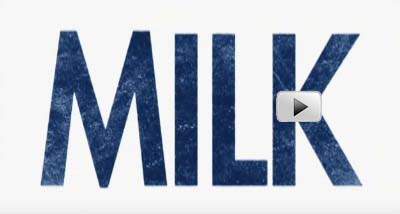
Other accomplishments include but are not limited to:
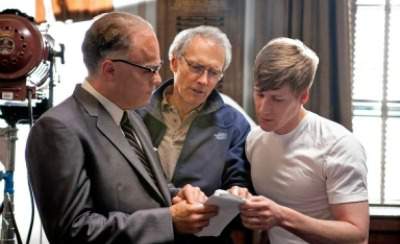
Dustin Lance Black wrote a play about it, 8 , that gave him the opportunity to combine his writing and civil rights work.
Rob Reiner, who - like Dustin Lance Black - is also a founder of the American Foundation for Equality Rights (AFER), directed the play.
The Los Angeles cast included George Clooney, Kevin Bacon, Brad Pitt, Martin Sheen, Jamie Lee Curtis and John C. Reilly to name a few.
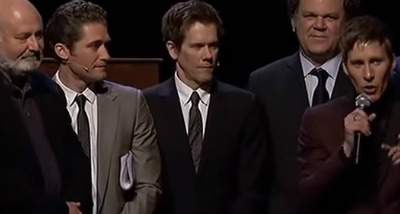
What made Dustin Lance Black the famous screenwriter he is today?
The realization that stories can change the world.

Dustin Lance Black:
“I think stories are the most powerful thing we have to communicate, to change minds, to change hearts. If you can do that, you can start to change communities, states, countries, the world. I just think that they are the most potent thing we have.”
And when Dustin Lance Black says story, what he really means is 'personal story'.
So what is Dustin Lance Black personal story? And how did he discover the power of personal story?
Born June 10 1974, Dustin Lance Black grew up in a devout Mormon and military household in San Antonio, Texas.
Characterized by the innocence of a child and his love for words Dustin Lance Black got very excited when he heard for the first time the Prophete of the Mormom church talk about "homosexuality".
“I heard the word homosexuality and lit up because I thought: My God, that's a lot of syllabels, it has an x in it, it's going to be fantastic in scrabble, I have absolutely no idea what it means.”
This excitement however quickly changed into fear when he realized that he had a crush on another boy and that his environment had absolutely no tolerance for that.
“Growing up in the Mormon church I heard from a very, very early age that homosexuality was a sin next to the crime of murder. So from the age of 3, 4, 5, 6, – when I was just a little kid, three foot tall – I knew that I was right down there with all the sinners and the murderers and the rapists. It was very scary.”
Afraid to share with his family ...
“I loved my family to death but I knew that that's how they felt because that's what we learned.”
Dustin Lance Black spent his youth feeling different...
“I became intensely shy, I had thoughts of suicide. I was a pretty dark kid, because I had an acute awareness of my sexuality, and was absolutely convinced that I was wrong.”
Looking retrospectively at his youth, Dustin Lance Black shared how this experience shaped him:
“I survived. I got lucky. I did the hard work and this is hard work to recover from the injuries you suffer when you're a kid in that kind of environment, injuries to your soul, to your self esteem, really I've taken whatever strenght I've drawn from being able to recover from that and I work every single day to make sure that kids won't feel that again as this is unnecessary. That's what that kind of childhood did to me. It turned me into a fighter.
In this Mormon and military environment with no room for another sexual preference, this is ultimately the stories of Dustin Lance Black and of his friends that transformed his mother's view on the matter years later.
“As she looked me right in the eyes and she opened up her arms as she wrapped them around me and she held me so incredibly tight, it was the first time in my life that I knew absolutely, with clarity knew, that my mother loved me for me. Absolutely for me. For who I am, even the gay part.
And how did that happen? How that change happened, didn't happen because my friends went out there and preached about all the facts about being gay, about the science about being gay, about why politically it's right for minorities to be protected. It is because they shared their personal stories.
Their own personal stories were able to change my mother's heart in one night. Everything that she learned from the church, everything that she learned from the government was gone in one night.
And that's the power of personal storytelling I learned right then.
That realization was to have a great impact on his life:
I said if this is the power of personal storytelling, this is what I'm gonna do with my life.”
Combining this realization and his earlier discovery of the story of Harvey Milk, Dustin Lance Black went passionately to work to realize what was to become an Award Screenplay.
“In college, when I first saw a copy of the Rob Epstein's Oscar-winning documentary (The Times of Harvey Milk), I remember just breaking down into tears. I thought, 'I just want to do something with this, why hasn't someone done something with this?”
“In his Hope Speech, Harvey Milk says, 'There's that kid in San Antonio, and he heard tonight that a gay man was elected to public office, and that will give him hope.'
And when I first heard that speech, it really did that. It really, really gave me hope, for the first time.”
In a very memorable acceptance speech Dustin Lance Black acknowledged both his mother and Harvey Milk and stood for equality rights of LGBT in front of the whole academy and more than 36 million viewers.
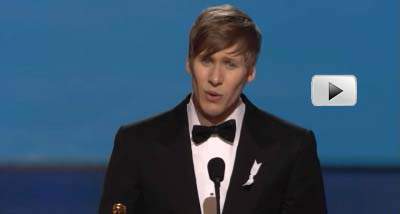
For some screenwriters, writing has devolved into a job.
Not for Dustin Lance Black.
Out of his interviews, it is very clear that writing is his self expression. There is an urgency to write. This is one of the ways he has chosen to make a difference and bring the change that he wants to see in the world.
No wonder that he brings a prestine integrity to the process of writing.
Dustin Lance Black:
If someone believes that the world is good as is, that this is it, we've reached the pinnacle of human existence, then you know what? Don't write. Get out of the business. Go lounge somewhere.
I write because I don't think we're done, and I think that we make progress by telling our personal stories.
Inside of his commitment to contribute to others, Dustin Lance Black explained the process he goes through to write a screenplay in an amazingly powerful video - see below.
Based on other interviews he gave, we took the liberty to add some information - even steps - to the process.
Our advice, check the video and then read the description of the steps below, as they are complementary.
Following these 9 steps will give you an edge as a screenwriter and allow you to:
Like for any recipe, you will need some specific ingredients. Those are:
And like in any recipe, there is also a magical ingredient that will get revealed during step #1. Do NOT miss it!
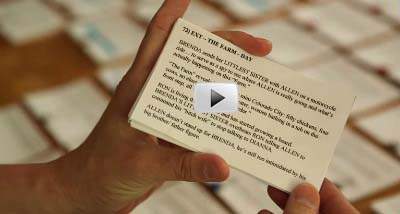
The first step starts with a simple but essential question.
Your answer to it will be decisive in you sticking to telling a particular story over time or not. It will also unconceal if you have this special ingredient that will have you go the distance, no matter what.
Dustin Lance Black:
“The thing to figure out first is why you want to tell that story.”
“That's where I start -- taking an idea, whether it's fiction or non fiction and figuring out why -- not just what you're gonna tell, not that it's entertaining or interesting, but why are you telling that story? What is the purpose of that story?”
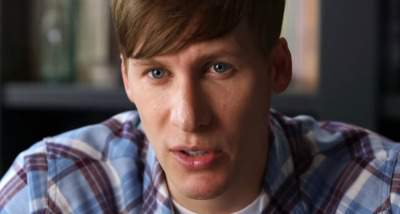
“What is it about that story that you feel if you dropped it into the culture in two or three years, how is that going to create some positive change?”
“And let's talk about change for a second. Change is so much about creating chaos. You want to mix things up. You want to create a little messiness, because out of this messiness will come something new and something good...”
“And I think if you're thinking about telling stories in that fashion, it does two things:”
“One, it gets people's attention because you're saying: "Hey we've been going that way, there's another direction, there's something new and novel about this. And if you have a clearer idea of what that is, you can clearly express it too.”
“Two, the toughest thing about storytelling is that no one believes it's going to be any good. You're the only person who's gonna believe in it for a really long time, particularly in Hollywood, or in publishing. Everyone's gonna say: “I've seen it before”, “I'm bored”, “I don't get it”. That is what you hear a lot, “I don't get it”, and that's okay.
You've got to be so passionate about the chaos you're going to create with this thing that you're willing to hear no thousands of times, waiting for that one yes, which for me came from Gus Van Sant, Sean Penn and Focus Features.”

Once you have established why you want to write a story and you are clear that you are passionate about it, it is time to get immersed in your story and get knowledgeable about it.
Dustin Lance Black:
“I love history. There is a reason I do biopics. It's I love that. Researching it, getting to know all these people, becoming an historian and putting my historian cap for 3-4 months is exciting”.
“For me, research drives inspiration most of the time.”
“I spend a great deal of time, even if I’m doing something that is fiction, researching the area I am about to write: the subject matter, the era, what the music was like, etc. If it’s non-fiction, then I dig real deep and search for interviews.”
Dustin Lance Black spent 5 years on and off doing some research on Milk and 1,5 year on J. Edgar Hoover.
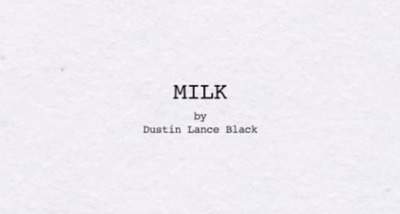
“I think it's very, very important to get to the truth, and that means firsthand interviews. That means meeting the real people.”
“When I can’t find anything firsthand, I’ll read books and listen to depositions if say a courtroom was involved.”
“It becomes just volumes of material... Some of it I used, some of it I didn't.”

Dustin Lance Black acknowledges as well the pitfall of the research process and the need to remain focused:
“I can get trapped in research because it's so fun and you meet so many wonderful people, interesting people, very different people. So you can get lost, thinking that's work and that's part of the process.
“And all of a sudden you realize "why am interviewing the secretary of the person who works 3 doors down from Harvey's neighbor? Like, what does that mean?
“You start to get stuck in the world and keep exploring it. I did that with Milk, and I think I have probably 10 other movies in my research from that period."
After having accumulated all this research, the moment comes to structure it in a way that leads to a story.
For that step, Dustin Lance Black does not use any software. He uses instead notecards and a big kitchen table. It allows him to see ALL the notecards at a glance, play with them and move them around easily.
A. The Focus:
Dustin Lance Black:
“I think in any project you need to decide what the focus is on. For me [with Milk], it was politics. I thought I can hopefully convey his personal life, emotionally why he's doing what he's doing, and those relationships through the lense of politics, and what he hoped to gain, politically and socially.
B. The Line-up of the Notecards:
“The research ends up on notecards, but so do ideas for scenes and ideas for characters.
“Each note card should be as pure and singular an idea as possible, because I want to be able to move all the pieces around and to create a film. And a film is not what happened. A film is an impression of what happened.
“This is what a scene ends up being. Each one of these cards has a color.
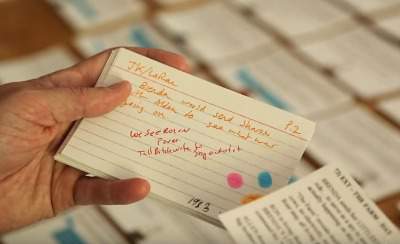
“Those ideas become little stacks of notecards. And then those stacks turn into scenes.
And those scenes start to line up on a giant butcher-block table in my kitchen.
Act 1 -- I start way up here in the corner.

Eventually, all of that fills up that giant table in my kitchen and I think -- this might be a movie.
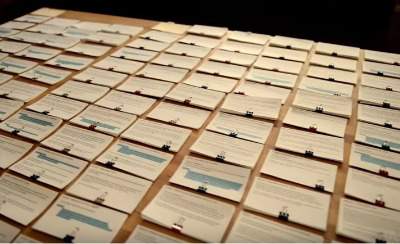
C. The Organic Structure:
It is a lot of structure, but it’s not me sitting there trying to follow any structural rules. It’s just me moving things around until they feel right.
D. The Cut:
Dustin Lance Black:
“ And if I can't get to the end of the movie by that corner [showing the bottom right corner of the table], it's time to start cutting.
There's no reason to write all that stuff and then have to cut it later. I may as well cut it before I have to write it.
It's painful, because you've done so much work to gather all of these interviews and this information, and 90% of it is gone. 90% of it you'll never use. But I just have to say, "there's no room. I don't have any more room on that table."
[On Milk]."It's tough to find out from a whole life which parts are the best for a 2 hour film. Especially when you know the story of Harvey Milk. There are so many great stories. You have this subject that matters and you figure, man, you might get an audience to pay attention for 1:30 - 2:00 hours. You need to figure how to say this in this many words or no one is ever going to watch. So for me, it's like killing your children. It's these lovely stories that you don't want to see go, that you really worked hard on researching, you have to let them go for the sake of the project.
It gets much harder to cut a scene once you’ve written it.
For the people who just jump into their screenplay without notecards or outlining, they fall in love with these scenes and it takes months to kill them. It’s like an ex-boyfriend or something is torturing them. They created a relationship with it!
Kill it when it’s just a notecard and it is much easier. And I guarantee, you are still going to have to kill a few of those creations when you’re past the outline. Even when you get to draft, some will still have to go. It’s hard, but do it before you fall in love.
That [process] is a big part of what it is for me to be creative. I think it's not just creating something new and original. It's actually finding a way to do something new and original that works.
Dustin Lance Black:
Once I get the cards in a place where the scenes are laid out in some order that starts to make sense, I just wake up in the morning, walk into the kitchen, and watch my movie.
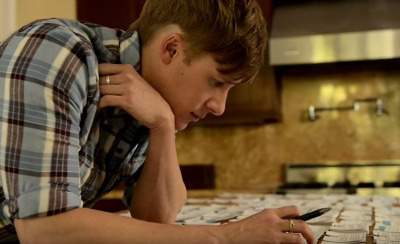
And that means just reading every card and visualizing each scene, and if I get bored or if I get stuck or if I find something that's not logical or is repetitive, I stop and I fix it.
And then I start over again.
I just keep doing that day after day, week after week, until I literally can get through the movie a few times and I'm not bored.
Dustin Lance Black:
Once I run through the movie and feel like the movie is really there and it’s not too little and not too much, I’ll turn that into an outline.
And I'm gonna put [each card] in the box. And I'm gonna put it in the box in this order [as displayed on the table].

And this is the order that I'm gonna write it in in my first draft.
Dustin Lance Black:
Over the next number of weeks, I start writing what I've been doing. I've been seeing the scenes in my head for so long at this point that it's almost like just regurgitation. Like, I'm just getting out. And I call it my vomit draft.
I write the first 10 pages in a way that's very readable and something that I wouldn't be too ashamed of someone reading. And then the next 90 to 120, whatever it might be, I just spill it all out. And I allow myself to make mistakes and to improv and play.

Dustin Lance Black:
I get up at 8:00. I am in here writing by 8:30 or 9:00. I take maybe a break for lunch, a break to go, you know, sweat it out at the gym, and then I'm in here until about 1:00 in the morning. And that's six to seven days a week.
I love and hate what I do. It's like an addiction. I want to solve the problems. I want to make it work.
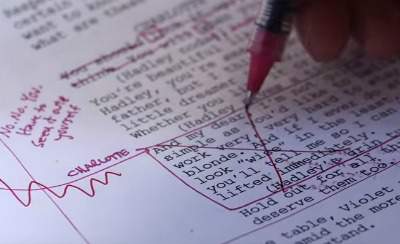
I'm always rewriting. The great thing about directing is that you get another shot at rewriting. And that's always the big fear when you're not.
Based on other interviews that Dustin Lance Black gave, we took the liberty to add step 8 and 9 to this process.
We identified 2 criteria to pass the test drive of your script.
#1:
Dustin Lance Black:
Whenever I write a true story, I'm like "Oh my gosh it's all lies, no one has ever lived their life in 120 minutes".
So the real question for me is always, you're going to have to telescope the timeline, you're going to have to combine the characters you're not going to be able to say all the things they said, to have all the steps along the way to show the maturation process, how you got from point A to point B.

It's sitting down with that outline first and that script in the end and reading it and saying: "is it truthful?". In any way did I lie about intent? and that's really up to the artist. Each artist is gonna have a different evaluation if it's truthful or not.
#2:
[On what makes a good movie]:
Do I get bored is the main thing. There's nothing worse than a movie that's trying really hard to be good, like trying to be an academy movie. I just want to be entertained. At the end of the day you can't change the world with a message in a movie unless it's like entertaining.
Dustin Lance Black:
"It's a mistake to fall too much in love with the words that you've written going into production. You've got to be free to rewrite if you've got a great director."
[On Virginia that Dustin Lance Black wrote and directed]:
"I learned a great lesson from Gus [van Sant], which is that you go with the moment. I tried as best I could to leave my expectations at the door each morning and to try to forget what I was seeing when I was writing the script - to just show up on set and see what we had to do and what we could make of it. That helped. Otherwise I think I would have gotten mired down and lost in what I thought it could be."
[On Milk] In TV we have a lot of control as writers but my first time making a feature we didn't have as much control with Gus [van Sant] and I'm like "My God what is this going to be like?" you know, he's going to be shooting it and editing it and then what's going to happen to the words, what's going to happen to the story and you have to have faith. That's scary as a writer but I've been gifted to work with people who have made it better. So I think Gus has made Milk better.
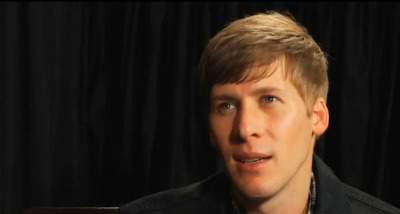
Dustin Lance Black:
I grew up around stories, I grew up around crafting stories and that's what I wanted to do. I did not grow up wealthy so I could not self finance movies, so I became a screenwriter.
"The biggest challenge as a screenwriter is actually writing. That's true. I mean actually sitting and writing down the script.
The actual writing is scary because that's when you're committing yourself. You're committing yourself to what is going to be seen and what is going to be a natural part of the story. So yes, I think that's the toughest part.
I think sometimes artists think, "Well, it's all been done," and I hear that all the time. Like, "Every story has been told and every character has been drawn." And it's like, well, that's bull. It's not true.
The specificity with which an author or a filmmaker paints those characters and paints those stories and the details that are put into them, that should be able to be original forever.
Dustin Lance Black screenplays are all about characters and their personal stories.
No wonder that many of his screenplays' titles include the name of their main character, e.g. Milk, J.Edgar, Virginia, The Journey of Jared Price.
What is his access to create compelling characters?
We found 4 elements:
"Inspiration comes from reading our history, reading any history, listening to people telling stories.For me it's always that very very personal story, and it's usually about an outsider of some sort, and the power that the outsider has to create the chaos - in their comfortability create the chaos - that's necessary to create change."
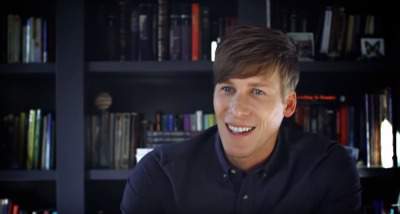
"[Referring to his childhood] Being an outsider teaches you empathy. You go either very dark or you go pathetic. I approach my characters that way. I see how they feel different and when you do feel different, you create a connection. So I always kind of look at what that means, creating a connection, either personally or socially."
"I think there are ways you go about trying to make sure that your stuff is unique, and to me that just means specific. You know, there's a terrible studio note [about characters], which is like, "well, just make them relatable." And I'm like, "you know what? No. Make them really 'them' and really specifically 'them'," and it becomes very universal, and that comes from research."
[About J.Edgard] "I always start with this idea that no ones sees himself as the villain. And I wanted to know where it came from, why he made the choices he made.
You're going to see inside the mind of someone who did so many indefensible heinous things, but understand why he thought they were heroic or necessary. And I think it is understanding people who go from good to evil and understanding how that happens we can maybe prevent it in the future.
The movie does not take a position on who's right, who's wrong, who's good, who's bad, who's lying, who's telling the truth. And it does not take a position on what it is about."
The result?
Out of ordinary characters that the audience connects to and dialogues that ring true.
Two examples:
1.From J.Edgar - The New Bureau scene:
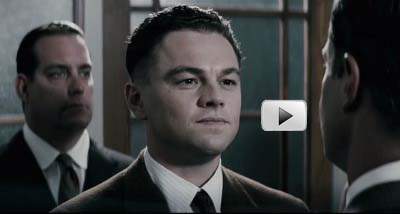
2.From "Milk" - The scene when Harvey meets Scott:
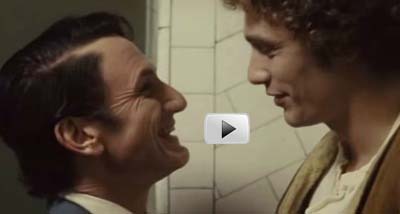
The dialogues of Dustin Lance Black have some points in common. For example:

PEDRO
Last night, I went to see Schindler's list, the Steven Spielberg movie. As I was leaving, I had this really great thought, that it doesn't matter whether I die of AIDS or I survive. In the big scheme of things, what matters is that I stood up and I was counted.
2 examples:
1. In "Virginia", there is a scene between Virgina's son, Emmet, and the sheriff of a little mormon town.
The sheriff is married, runs for office and bases his whole campaign on moral values.
The reality is however different - he has a SM affair with Virginia.
In this scene which takes place in the sheriff's home, Emmet who has been wondering if the sheriff was not his father after all, tells him that it is not the case. He did some research and can prove it. A fight ensues and Emmet seizes the sheriff's gun.

SHERIFF
Emmet, you may think what I've done is wrong... but what you are doing ... is against God.
2.From "The Journey of Jared Price", one of the early movies that Dustin Lance Black wrote and directed (2000).
Jared is 19 and leaves his stable home in Georgia to go to L.A. where he will discover love and deceit from an older man, who hires him to take care of his blind mother, Mrs. Haines.
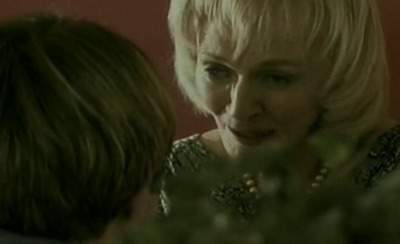
MRS. HAINES
Let me tell you this. Don't waste your time on the ones who will lavish you with gifts and praise, but instead, find the one who will be careful with your heart and hold on to him.
JARED
Why do you say him?
MRS. HAINES
I may not be able to see things, dear, but I'm not blind.
"My biggest mistake for a long time was I was trying to write what I thought Hollywood wanted to make.
So you look at Hollywood, so like right now, if you write a vampire story, you're probably in a good shape, because they are interested in that.
But that comes and goes. That sort of fashion changes.
I eventually just discovered - and it probably seems obvious to most people - that you're never going to do better than someone who's really passionate and loves horror film. I'm never going to do that better than they could.
And so, I eventually just started to write things I was intensely passionate about or I connected to personally, like Big Love - I grew Mormon so I was able to kind of exercise those demons. With Milk, it was the guy who I still think saved my life in a way.
Something you're passionate enough about that when anyone tells you it sucks or to give up, that you don't. You say, 'you know, it might suck and I should give up, but I might give it another crack for another 2 years as I feel strongly about it'. And that will get you through. It gives you a huge advantage."
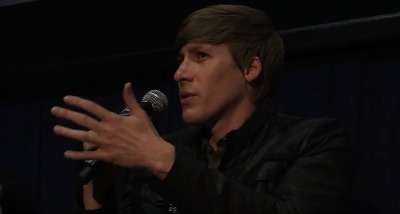
"Your primary value as a writer is you.
If you're interested enough, it's the voice you bring to it, it's gonna make it special enough that sticks out a little bit...
The studios want whoever you are, whatever is specific about you.
The more specific you can get I think the more relatable it is, the more universal it is.
Abandoning who you are and what you like, to try and sell something, you're going to fail."
"If you're writing something you're passionate about, that's coming from a personal place, it's going to be so specific and so much more emotional, it's going to draw people in Hollywood to it."
* Hancock - screenplay written by Vincent Ngo and Vince Gilligan
Source of above information and quotes includes but is not limited to the following video/article interviews and websites:
-- How " story " is the most effective way to change hearts and minds | Dustin Lance Black - UCD
-- On truth & lies in storytelling | Dustin Lance Black - UCD
-- On what makes a good movie | Dustin Lance Black - UCD
-- Dustin Lance Black and a world of dreams - Tustin Spain
-- Creative Spark: Dustin Lance Black - Academy Originals
-- Trinity Forum with Ben Haworth and Kevin Sheil
-- Reel Life, Real Stories with Christine Aylward
-- WB's J.Edgar Interview: Oscar-winning Screenwriter Dustin Lance Black - Celebs.com
-- Dustin Lance Black Speaking - ODU Creative Writing
-- Dustin Lance Black's Oscar Speech 2009
-- The Screenwriting Process with Dustin Lance Black - thescriptlab.com
-- 2011 LA Film Fest: CoffeeTalk Screenwriters
-- David Michael Connor interview with Dustin Lance Black - Huffington Post
-- Dustin Lance Black Interview talks storytelling and Uprising of Love - Miranda Divozzo
-- Dustin Lance Black at the 2012 HRC National Dinner - Human Rights Campaign
-- "8": A Play about the Fight for Marriage Equality
-- Dustin Lance Black official website
* Saving Private Ryan, screenplay written by Robert Rodat